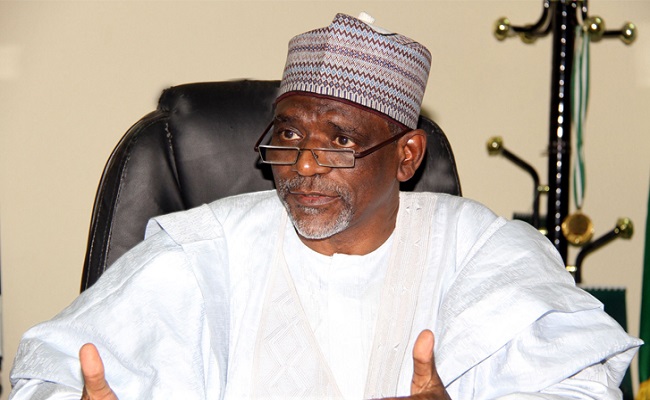THE outbreak of the COVID-19 pandemic set off a rash of panic measures in Nigeria, as in many other nations of the world, including and particularly the blanket and sustained shutdown of educational institutions.
But experts are saying that the protracted closure of Nigeria’s tertiary education institutions has grave implications for the country’s manpower development and by extension, its future prosperity, among other effects. A professor of political economy and management expert, Pat Utomi, said the sustained closure of tertiary institutions is tantamount to killing a generation’s growth.
“There is no question that what is happening is that we are killing one generation’s growth. When ‘normalcy’ eventually returns, there will be a break in the pipeline of trained manpower from within, and that’s never good for any economic system, especially where we are lagging behind in quality educated people.
“It is an unpleasant development for our country that is desperately in need of quality manpower and that desires to become a productive economy,” he told Nigerian Tribune.
Nigerian schools, at all levels, have remained shut since March as part of measures to curtail the spread of the new coronavirus infection, and only now are some state governments cautiously reopening for exit classes in primary and secondary schools for students at those levels to prepare for and sit their terminal examinations.
However, there has been no consideration for reopening colleges of education, polytechnics, monotechnic institutions and universities. This interminable disruption, experts contend, has the potential of introducing “alarming side effects, the outcome of which is difficult to fully assess.”
Emeritus Professor of the History of Education at the University of Ibadan and former President of the General Conference of the United Nations Educational, Scientific and Cultural Organisation (UNESCO), Michael Omolewa, particularly bemoaned the “harm being done to the innocent students by keeping them away from the opportunity for advancement with their career and life.”
Professor Omolewa said: “Nothing should be allowed to disrupt the timetable for learning at the time learning should be taking place. “Indeed, there are certain grades and levels of attainment at some points in one’s life that may be put at risk by sudden and avoidable stops and delays.”
He cited the example of Olabode Akanbi Thomas, the iconic Nigerian lawyer known as Chief Bode Thomas, who was called to the English Bar at the age of 23, and subsequently at the age of 34 became Nigeria’s first Minister of Transportation and later of Works, and was later appointed chairman of Oyo Divisional Council.
He also cited the case of Chief Anthony Enahoro, who at 21 became editor of a Nigerian newspaper and later moved the motion for Nigeria’s independence in 1953 at the age of 30; and the late Nnamdi Azikiwe, who graduated from Lincoln University in the United States at 26 and immediately thereafter joined Herbert Macaulay to fight forthe independence of Nigeria.
“Can you imagine what would have been the lot of a person like Wole Soyinka, Africa’s first Nobel Laureate for Literature, who at just about 31 years was already a graduate of Government College, Ibadan; the University College, Ibadan and the University of Leeds and had been appointed lecturer at the University of Ibadan?
“If the education of Wole Soyinka had suffered avoidable delays, it is evident that he would probably never have been able to reach the heights that he reached at those early years of his life. “How many of the modern Soyinkas, Enahoros, Bode Thomas and Azikiwes are being prevented from reaching their destinies by the denial to access their classrooms, teachers, colleagues, libraries and laboratories?”
Omolewa also examined the effect of the protracted closure on character formation and the numerous vices children could be exposed to when perpetually kept away from school. He added: “Let us be reminded that adult education teaches that there are constraints to learning at some given age and that it is wisdom to sustain the learning begun early. Any break in learning must necessarily suffer consequences.
“Some learners may grow weary and refuse to continue learning. It is reported that UNESCO has predicted that tertiary education is likely to experience the highest dropout rate and a projected 3.5 per cent decline in enrollment, resulting in 7.9 million fewer students.
“Some students may choose to continue but change their course of learning. This means that when some students who had opted to read medicine choose to end up reading Anatomy or Biochemistry, the loss tothe medical profession may not be quantifiable. There are some courses that are better and more easily pursued at specific ages with minimum stress.
“It becomes imperative that all disruptions at the tertiary level of our educational system should be speedily brought to an end in the interest of this country. Way out Utomi says Nigeria has become fiscally unreliable and needs to be reprogrammed’. “Nigerians don’t realise how big a crisis their country is in. That is the biggest problem, but we think it is normal. The country has become fiscally unreliable; it’s been run so badly that the money to really use to [rehabilitate] the people does not exist. There is no production, except the free gift of oil, literally speaking.
“The country needs to be reprogrammed and I don’t think the wisdom of solving the huge problem exists in the current political class. I don’t think so; because their mindset is about sharing what more is available to be shared.” He said the nly thing that can save Nigeria is for it to produce its way out of the nightmare it is in.
“But how can you produce if you don’t train the manpower that can actually be a producing class?” Omolewa said: Certainly, tertiary institutions have a role to play in restoring the dignity that Nigeria had at independence. Staff and tudents and all stakeholders are eager to resume learning.
Already, Nigeria is far behind in almost every known area of development. When countries such as the United Arab Emirates (UAE) is already launching satellites and Malaysia is seeking an entry to the first-world status, Nigeria is still bedevilled by avoidable challenges, absence of cohesion, orderliness and stability.
“The youths should be given the opportunity to explore their endowments and talents, and live a life that is rewarding and satisfying to themselves, their parents, communities, the nation and the world.”
YOU SHOULD NOT MISS THESE HEADLINES FROM NIGERIAN TRIBUNE
1,126 Killed, 380 Abducted In 7 Northern States —Amnesty Int’l
The GLOBAL watchdog, Amnesty International, on Sunday, claimed at least 1,126 rural dwellers in seven northern states of Kaduna, Katsina, Niger, Plateau, Sokoto, Taraba and Zamfara, have lost their lives to rampaging insecurity in the zone since the beginning of the year. In a statement highlighting its recent findings, about 380 villagers were also reportedly abducted for ransom within the months under review, with victims’ relatives…
MONDAY LINES: El-Rufai Goes To Law School
I have this Igbo friend whom I call Omo Oduduwa. He speaks the Yoruba language with a competence that claps for whoever his teacher is – and he flaunts it. Every expression that shoots out of his trunk is rooted in wisdom. He once told me in Yoruba that his enemy was ill but he was the one taking medicine for the illness (ó re òtá mi sùgbón èmi ni mo nl’ògun). That statement I remembered when I read Professor Ishaq Akintola of…
Water Resources Bill: Lawmaker Says It Is Dead On Arrival
FEDERAL lawmakers are again smarting for a showdown with their leadership and the presidency once they resume from their annual vacation. The mutual ethnic suspicion in the polity will again reverberate in the consideration of the controversial National Water Resources Bill 2020, Nigerian Tribune investigation revealed. The bill which was shut down in the eighth National Assembly under the leadership of Senator Bukola Saraki…
LEADERSHIP & MANAGEMENT: Route To Iconic Leadership
The transformation of leaders into icons has much to do with what they don’t do rather than what they do. While it is fashionable for leaders to say ‘yes’ to a number of things, it is only those who make it a habit to say ‘no’ to many things that become icons. According to Warren Buffet, the investment guru, “The difference between successful people and very successful people is that very successful people say ‘no’ to almost…



